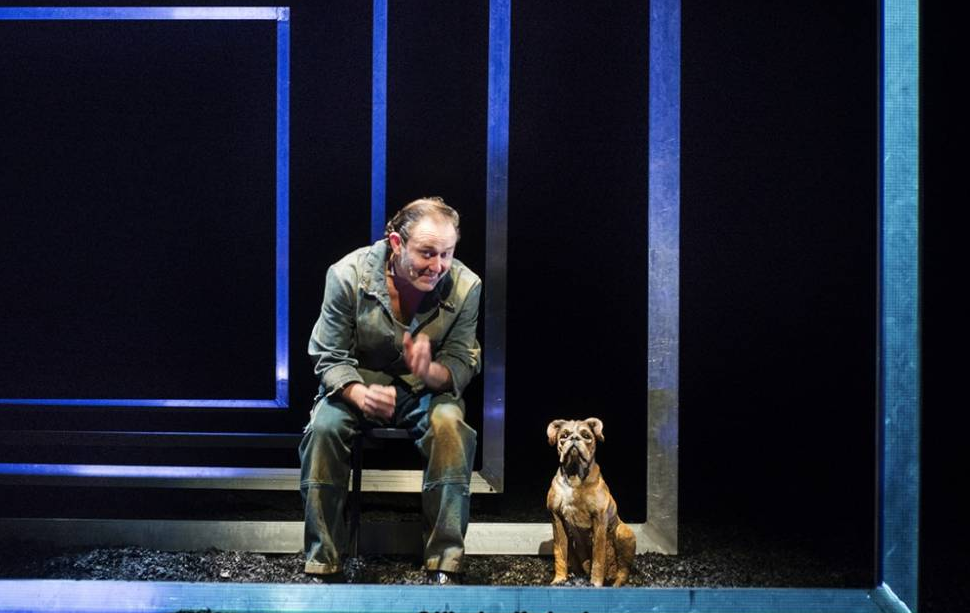For me, short plays permit a kind of intimacy that is more difficult to achieve or sustain in longer plays. This intimacy is possible for both the creators of the work and its audience. By intimacy I mean a particular knowledge, a unique emotional possibility.
It is the ‘scale’ of a short play that allows this relationship. Its scale is human, by which I mean that we can measure ourselves against it, we can relate to it in perhaps an almost visceral way; a short play is within our grasp both emotionally and intellectually. Its totality can be held in the memory, its emotional force can be immediate. The dramatic devices and techniques needed to sustain the narrative and characters in a longer play, no matter how subtle they may be, may distance us from the play, make us more aware of its structure than its content.
This, of course, is not always the case; but for me the experience of a longer play (and I mean both the experience of writing one and of watching one) is more one of understanding than of feeling. This is not to suggest that a short play does not have a structure, nor that understanding does not involve feeling; but a short play, by its very nature, demands a certain kind of compression, a certain urgency of intellect and emotion. No word can be wasted, no gesture can be unimportant. Because of this, a short play demands the sort of attention that must be paid in the creation of poetry. For me, a poem is a compression of experience, a place where something essential is extracted from the chaos of living, where from within the tumult of living a silence is discovered and perhaps out of the confusion of experience a clarity might be born.
The connection between poetry and theatre is for me a deep one. The ancient laws of prosody, from rhyming to metre, are laws based on memory and breath. Rhyme is an aid to memory, metre is a length, a measure, of breath. Poems were composed long before the invention of writing; the very existence of a poem depended on the presence of the poet (the one who spoke the poem). A poem was something remembered by the poet and then spoken, and once spoken, something remembered by those who had heard it. Presence, breath and memory are the deep roots of poetry. They are also the deep roots of theatre, which remains impossible without these things.
The short plays in this selection have certain things in common. They are each in their own way concerned with memory. They are plays of mourning and remembrance, of reunion or the hope of it. But what connects them most profoundly is absence; what has been lost is at the centre of these plays. These absences resonate within the plays, like the long echo of a bell, or the fading notes of a piece of music. This is the background against which the characters speak, what drives them towards the brink of hope: for hope is all that remains for them.
But we know that the young boy Hanna speaks of in THE RAIN will never come home again.
In May this year, an old Palestinian woman in Rafah was found searching through the rubble of what was once her home, which had been demolished by the Israeli Defence Force. She was asked what she was looking for. She said that she was looking for ‘the future’. Asked to explain what she meant, she said that she was looking for a key; it was the key to her old house in Israel, which she had been forced to leave in 1948, when the state of Israel was founded. She said that she needed the key because without it, how would she open the door of her house when she finally returned to it?
It is not whether or not the hopes of the characters in these plays will be fulfilled that matters, but the fact that their hopes are real; that is what defines these characters’ humanity, it is the reason they are present. The very breath they use to speak is the breath of memory, for without their memories there would be nothing for them to say and nothing to hope for.
Introduction to WHAT REMAINS, a season of short plays directed by Maurice Benichou: The Violin; Kaddish; Neither Lost Nor Found; The Rain; Bearers Of Light; Brief Darkness; What Remains
La Maison des Métallos, Paris
October, 2004


1 comment
coming across your work was impeccably timed in my life as an artist and i thank you